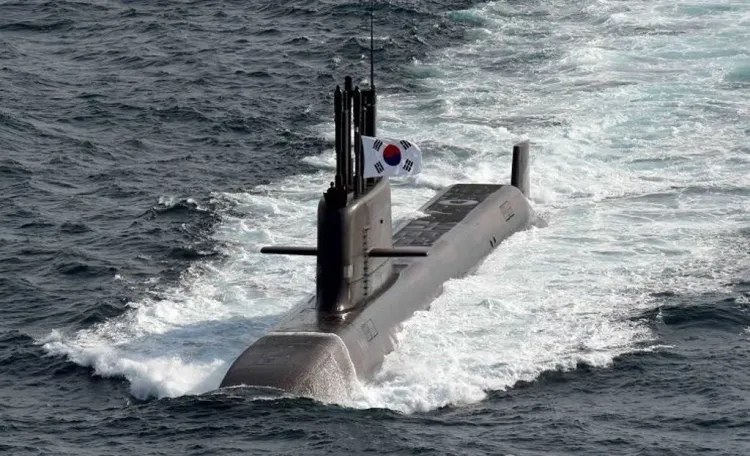Does South Korea Need a Win-Win Strategy for a Shipbuilding Partnership with the US?

Synopsis
Key Takeaways
- South Korea is encouraged to develop a strategic partnership with the U.S..
- The U.S. plans to place significant orders for vessels.
- Collaboration can lead to economic benefits for both nations.
- Close consultation with U.S. authorities is essential for Korean shipbuilders.
- Potential risks from policy changes should be monitored.
Seoul, May 19 (NationPress) South Korea must craft a comprehensive "win-win" strategy to leverage business prospects as the United States seeks to rejuvenate its shipbuilding industry, according to a local business association on Monday.
This suggestion comes after a recent discussion involving U.S. Trade Representative Jamieson Greer and high-ranking officials from major South Korean shipbuilders HD Hyundai and Hanwha Ocean Co. regarding collaboration in shipbuilding, as reported by Yonhap news agency.
The Federation of Korean Industries (FKI) emphasized the need for the South Korean government and shipbuilding firms to formulate tailored proposals that align with the U.S. administration's initiatives to construct new vessels, thereby fostering mutually advantageous synergies.
The report indicates that the U.S. anticipates placing orders for between 403 and 448 vessels by 2037, which includes commercial ships, liquefied natural gas (LNG) carriers, and naval ships.
These projected orders consist of 100 commercial vessels, 42 to 65 LNG carriers, 10 icebreakers, 129 combat ships, and 67 vessels for the National Defense Reserve Fleet.
The volume of U.S. vessel orders is likely to grow further, as the country aims to expand its commercial fleet to 250 ships under the SHIPS for America Act, proposed in April. This act also stipulates that by 2047, 15 percent of outbound U.S. LNG shipments must be transported on domestically manufactured vessels.
Moreover, the U.S. Navy has recently revealed plans to procure 364 new ships over the next three decades. In January, U.S. President Donald Trump promised that the U.S. would order 40 large icebreakers.
Professor Ryu Min-chul from Korea Maritime and Ocean University advised that Korean shipbuilders should engage in thorough discussions with the U.S. government when participating in domestic shipbuilding projects and ensure consistent backing from U.S. authorities, as mentioned in the report titled "Analysis of the U.S. Shipbuilding Industry and Implications for Korea–U.S. Cooperation."
Ryu also cautioned that Korean firms need to remain vigilant regarding potential business risks arising from possible shifts in U.S. shipbuilding policies.









